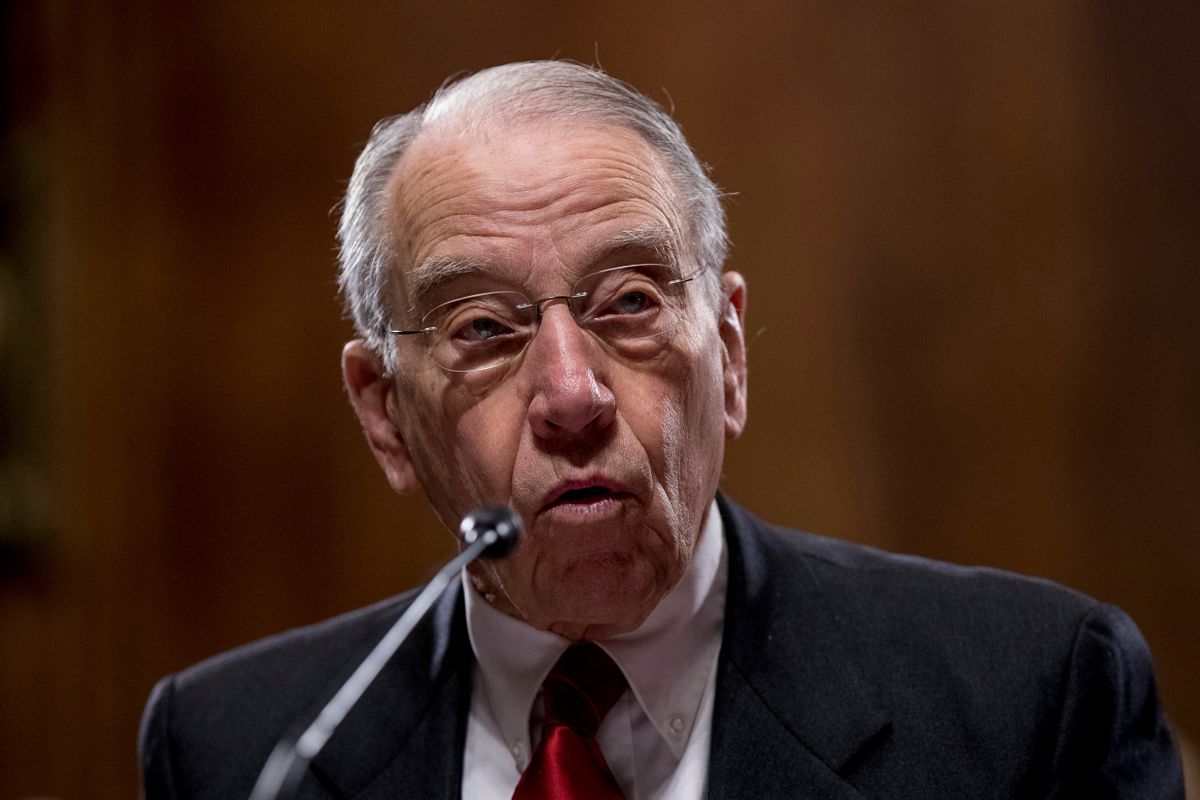Over the weekend, Republicans passed their $1.5 trillion tax cut, which primarily benefited wealthy Americans and slashed deductions for low- and middle-income citizens.
As soon as it was passed, the GOP had to find a way to sell the bill to a public that has overwhelmingly rejected it.
The answer has been class warfare.
Take for instance Chuck Grassley, who told the Des Moines Register Saturday that the previous tax code favors poor and working-class Americans who were "just spending every darn penny they have, whether it’s on booze or women or movies.”
Grassley was defending ending the taxation on inheritance of $5 million or more, known as the "estate tax" — a tax that was eliminated in the Senate bill. That tax brought in $19.3 billion to federal coffers, according to the Tax Foundation.
And fighting the estate tax, or merely working with it, was troublesome enough for Grassley. He then argued that having to spend money, for a wealthy person, was bad in and of itself. Per the Register:
Family farmers, small businesspeople and others that may be affected by the estate tax understand that it is law, so many are forced into spending large sums of their hard-earned dollars on lawyers and accountants to avoid its impact instead of reinvesting in their business. This means that while many don’t end up paying the tax, it still has a negative effect on the economy.
Grassley's claim that spending money was inherently a bad thing seemed to fly in the face of all economists. After all, the tax cuts were sold as middle-class tax cuts, as in, giving people more money to spend. Between the lines, the message comes into focus — spending money is good or bad, depending on how much money you have to begin with.
But that's what a senator — someone who voted for the bill — had to say. What about the corporations who benefited from the bill and the GOP's promise that the tax bill would lead to more jobs?
The New York Times went to a California mine and found that corporations weren't going to use their extra profit to hire more people for no reason whatsoever. That sentiment was echoed by an actual CEO, who wrote in an op-ed: "A tax break for their company simply means a fatter bottom line. Not jobs. Not investment. Just more money in the pockets of the folks like me."
Even Goldman Sachs, analyzing the bill's ramifications, didn't have a rosy outlook on it. Unlike Trump, who said that tax cuts would be "rocket fuel" for the American economy, Goldman Sachs found that the bill is going to do nothing in the short run and will be harmful in the long run.
Again, it's all about soaking the shareholders.



Shares